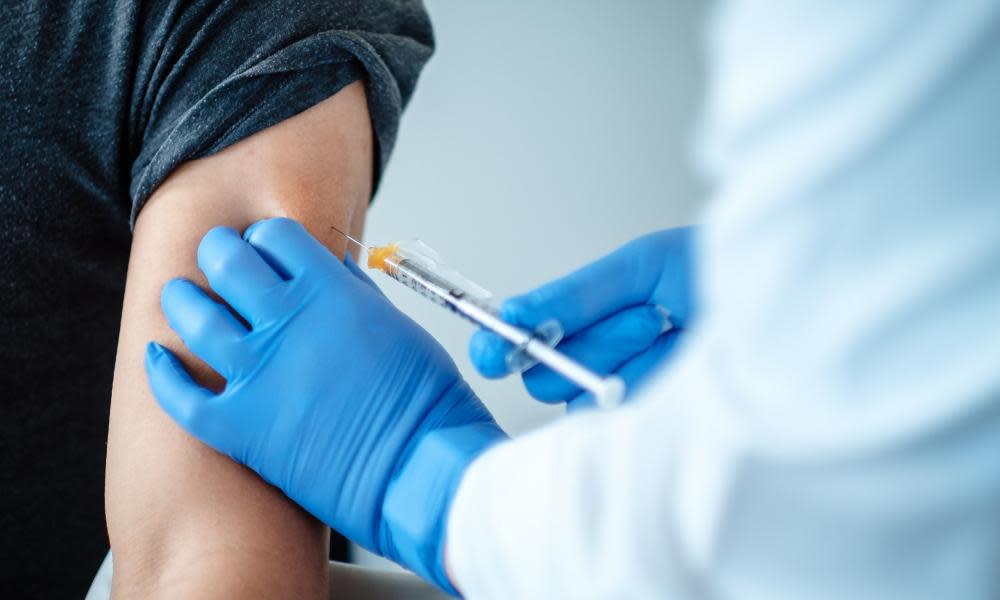Will enough people in the UK take the Covid-19 jab?

The spread of scepticism and misinformation about coronavirus and the development of a vaccine for it has raised questions about whether it will pose a threat to the goal of achieving widespread immunity.
A report published on Tuesday by the British Academy and the Royal Society for the SET-C (Science in Emergencies Tasking: Covid-19) group said an 80% take up of a jab could be necessary in order for enough people to become immune to the virus and stop its spread. However, the actual threshold will depend on the efficacy of the vaccine, and the 90% achieved by the Pfizer/BioNTech candidate in trials was higher than many dared hope for.
The report was the latest of several to cast doubt on the ability to reach such a threshold, finding that about 36% of people in the UK said they were either uncertain (27%) or very unlikely (9%) to be vaccinated against the virus. However, separate research, published in Vaccine on Tuesday, found that 90% of parents and guardians in England would likely accept a vaccine for themselves and 89% for their children.
Heidi Larson, director of the London-based Vaccine Confidence Project, said she had been involved in preprint research that found the willingness of people in the UK to have the vaccine fell by 6.4% after they were exposed to frequently circulated anti-vaccine posts, results she said were “striking”. She added: “It’s more likely that people say ‘sure I’ll do it’, but they might not, than people who say they won’t [accept a jab].”
By contrast, Prof Stephan Lewandowsky, from the University of Bristol, who released The Conspiracy Theory Handbook earlier this year to challenge Covid misinformation, said that while it was difficult to make predictions at such an early stage, mounting numbers of people dying or falling seriously ill could make the difference.
“My best guess is that when the vaccine is available people will be clamouring and lining up to get it, because they know this is the way out of this situation,” he said. He added that the UK traditionally had a high take-up for vaccines, with the exception of the flu vaccine, which was for a number of reasons including its low efficacy and the fact that the virus was not seen as life-threatening by many people.
More prosaic concerns were also raised by the experts the Guardian spoke to, including ease of access to the vaccine. A study of H1N1 in the UK found that one of the strongest predictors of intentions not to vaccinate was given as: “I cannot be bothered.”

 Yahoo News
Yahoo News 
